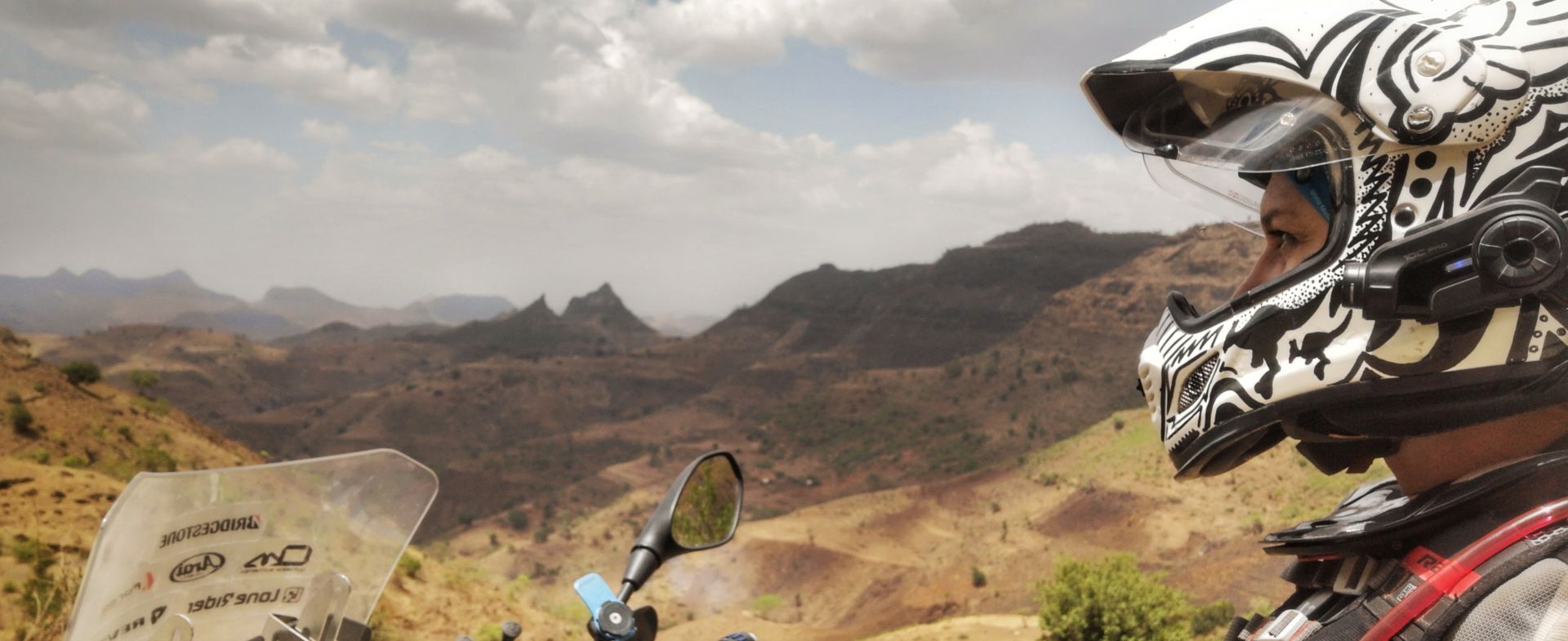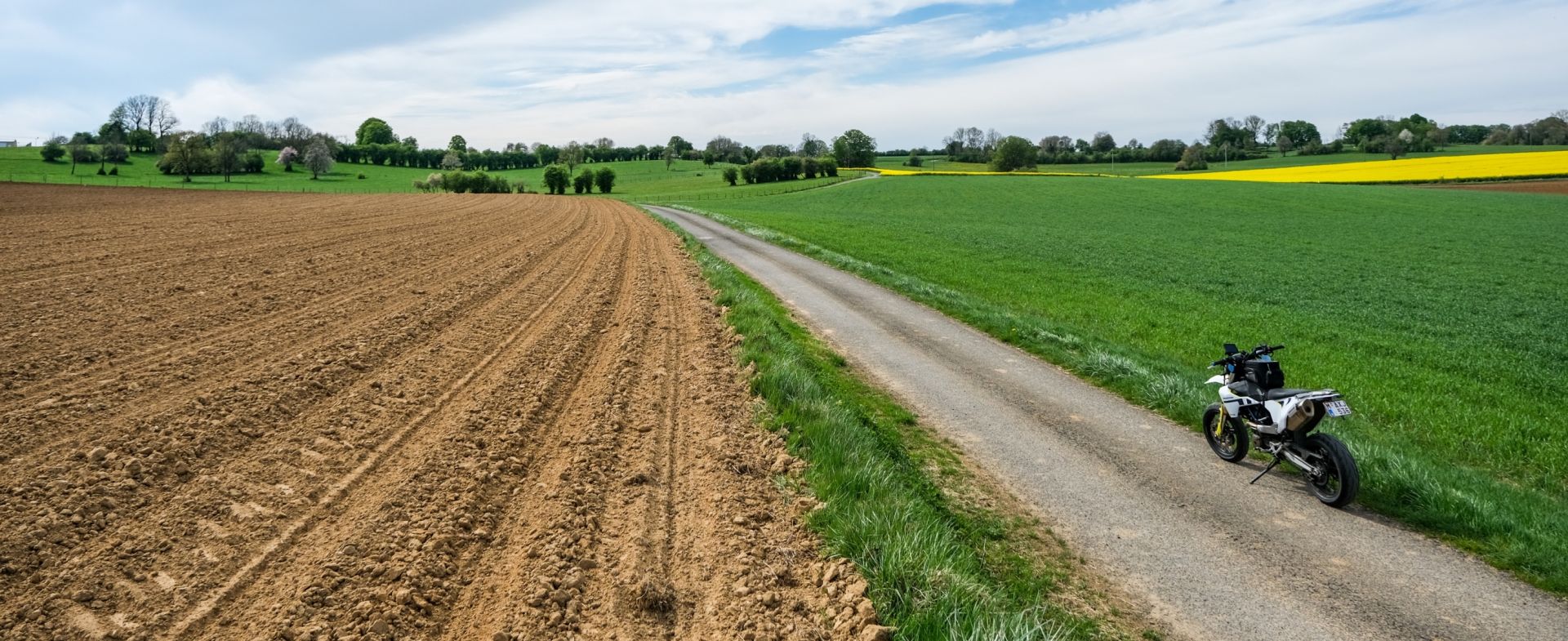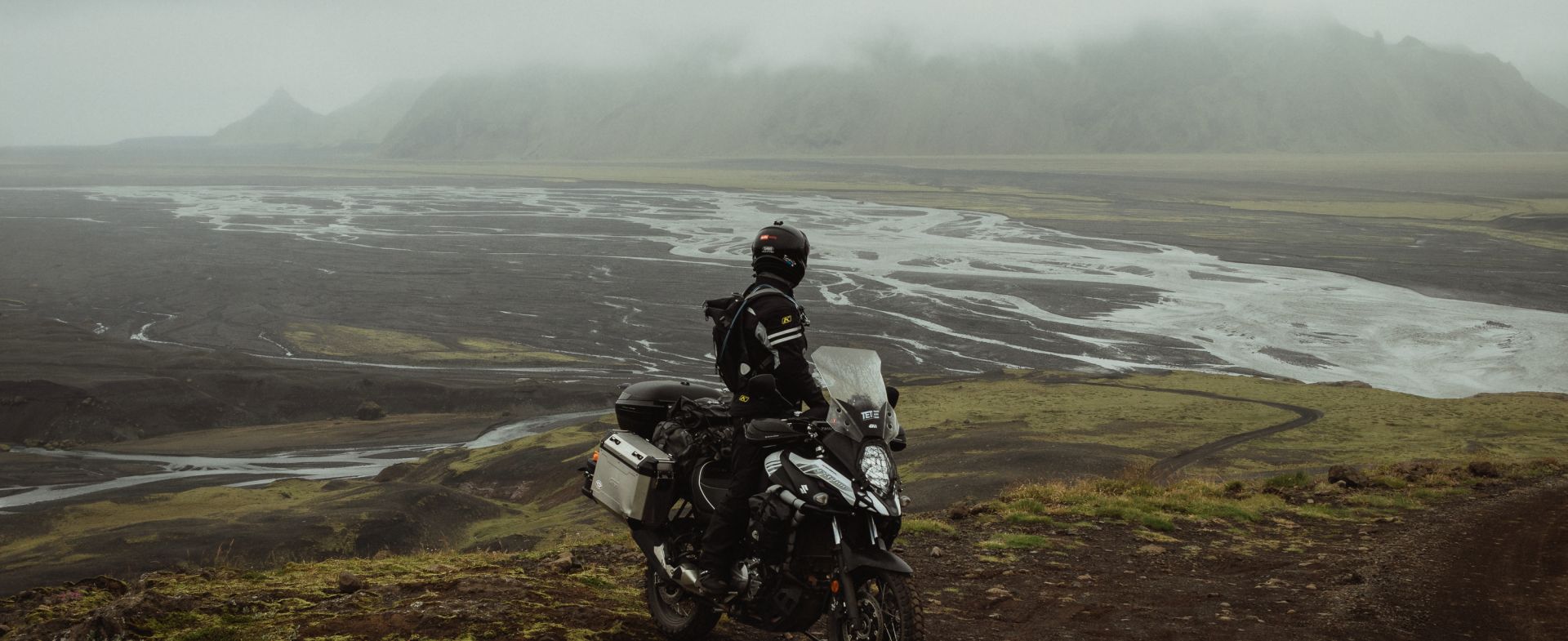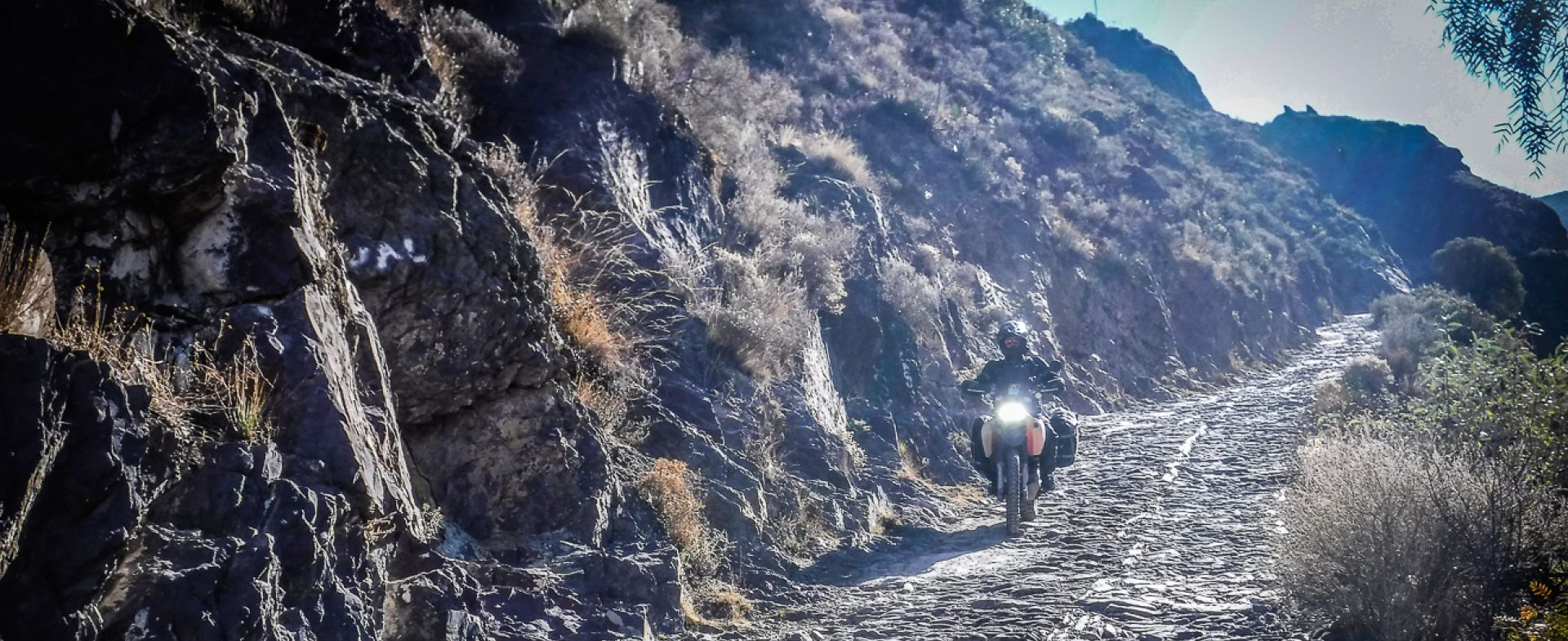The further I go, the further I got to know this continent and the more addicted to Africa I become.
On her bike: Through Sudan and Ethiopia
Motorcycle Diaries
The east coast of Africa has turned out to be much easier to travel than I thought. The major roads are in excellent condition, the people are very friendly and they easily communicate in English.
Right into the heart of a Sudanese revolution.
As I was getting closer to Sudan, the situation in the country was getting more unstable with every waking hour. The moment I crossed the Sudanese border I found myself in the middle of a revolution. The Sudanese people had been protesting against the government for months and as I arrived the army had removed the president. The situation became very unstable, people were confused and no one knew what this would evolve to. I was well aware of the risks, but I decided to carry on with my plans.
After my experience at the Egyptian border and considering the political situation in Sudan, I decided to use a “fixer”this time. Mazar from Wadi Halfa met me at the border and helped me with all the paperwork for a small fee and I was all cleared to go in 2h.
Not only did Mazar help me to enter the country, but he also gave me some shelter. I stayed with Mazar's family for 3 days to see how the situation in the country was going to play out and for the first time, I experienced the awesome Sudanese hospitality. It's an incredibly kind and honest nation and that theme continued throughout my whole stay in Sudan.
Sudan is mainly desert and very hot. Literally. Riding on the main road in the desert is bearable, but being stuck in city traffic in nearly 50-degree heat was a big challenge.
Fuel is the cheapest I've seen so far in the world – 20 cents per litre, but it is very hard to find. There are plenty of petrol stations along the way but no fuel. Locals queue to fill up sometimes for days. Luckily the moment they see a foreigner everyone lets you jump the queue.
I found wild camping very safe in Sudan. I followed the Nile River the majority of the time and that way I could camp near farmlands and in the shade of palm trees. Curious locals only ever greeted me with a “hi” and then gave me the space I needed.
The main tourist attraction in Sudan are the pyramids in Karima and Meroë. These pyramids were built 2500 years ago as tombs for Nubian kings and queens. Some of the pyramids were destroyed by treasure hunters in the past and now they're slowly being restored. Not as well known as the pyramids of Giza, so with no crowds around, they make a very special sight.
Sudan’s capital Khartoum is quite intense. There is a lot of traffic and the streets are packed with cars and Tuk Tuks, plus the heat! Upon arrival, I stopped at a few petrol stations but had no luck and eventually ran out of fuel in the middle of an intersection. Oh, the humanity! I used my 1 L spare fuel bottle and kept going to another petrol station which also didn't have any fuel, as expected. My local contact Mohamed helped to arrange some fuel from the black market over the phone.
In between all this madness, I nearly got heatstroke – the traffic wasn't moving I felt like my head was going to explode in my helmet. I pulled over to the side, took my gear off and ran into a shop to lay down on the ground to cool down. These extreme temperatures were the biggest challenge in Sudan.
In Khartoum, I camped at the Sailing Club on the Nile River which was just a stone’s throw from the heart of the revolution. It was a very intense part of the city – people on the streets were cheering and singing but the whole time I felt safe. The Sundanese people have a peaceful nature and are very respectful.
Sudan was a, one of a kind experience. It's mainly a hot desert but the kindness and hospitality I received there were just wonderful.
No other place like Ethiopia!
The moment I entered Ethiopia my first thought was... what a completely different world I've just entered. The landscape, the people's lifestyle were so different from what I've seen so far. Ethiopia stands at an average altitude of 2000 meters so it was much cooler than Sudan and I was so relieved to not be cooking in my gear again.
There’s a lot of history and many things to see. The tourist attractions are quite expensive but life on the road is very affordable. The main roads are in great condition and you hardly see any cars in rural areas. The villages are built along the roadside, lots of people are walking on the road, kids playing – basically their social life happens on the road so you’ll have to adapt your speed.
Ethiopia imports fuel from Sudan so there's a lack of it in the country. The Majority of times I had to find fuel on the black market which was double the price, but I had no choice.
I didn't do any wild camping in Ethiopia because it just didn't feel right. Even in remote areas the moment I stopped my bike thinking there was no one around, within a few seconds I was surrounded by locals. There are people e v e r y w h e r e. But I did camp at established campgrounds where I could just be by myself and enjoy the stunning nature.
The hotels are not expensive - for $8 you’ll have a single room. Nothing fancy but much better conditions than the ones in the Middle East. Overall my budget was not more than $20 per day for fuel, accommodation and food.
I began the Ethiopian leg of my trip in Gondar, which is famous for its castles. But, to be honest, I'm not a good walker so I just flew my drone instead to check out the castles from above...
The Simien Mountains are known as one of the best hikes in Ethiopia. People from all over the world come here to trek this range for days under the supervision of an armed guide and it's quite the pricey experience. But for me... I just stuck to the roads and admired the scenery from my handlebars. It was a very unforgettable ride!
A place I definitely recommend is the unique village of Awra Amba. With a population of 500, it is a community with a truly extraordinary lifestyle where men, women and children are all considered equal. The community is based on the principles: respecting women’s rights, respecting children’s rights, caring for the elderly and vulnerable and eliminating religious or cultural prejudices & segregation. There’s not enough land to farm so weaving has become the main source of income for the Awra Amba. In their textile factory the villagers make clothes for themselves and to sell to others.
The community has a strong focus on education, they built the school for their own children and encourage the kids to continue their education onto university.
It's a remarkable place and very inspiring.
Ethiopia is the original home of the coffee (Arabica) plant. So, while I was exploring some of the finest coffee plantations in the Yirgalem region I couldn't help myself... I bought a kilo of unroasted coffee beans, thinking I'd be able to work out how to roast them later!
See the other stories about On Her Bike here.
Want to know more about On Her Bike?
#FORYOURRIDINGPLEASUREONLY
































